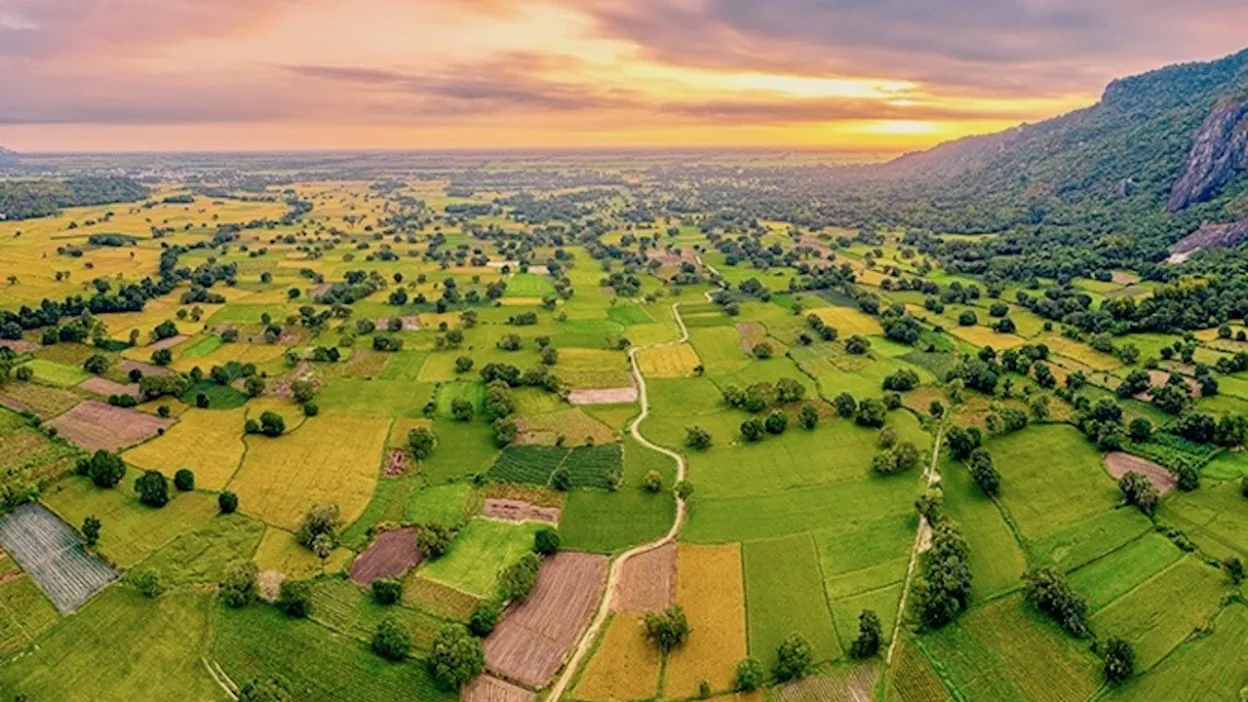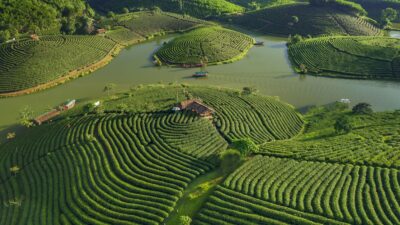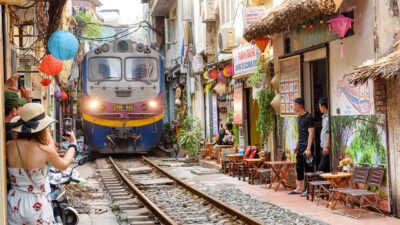When travelers think of Vietnam, they often picture the bustling streets of Hanoi, the vibrant energy of Ho Chi Minh City, or the lantern-lit nights of Hoi An. But beyond the urban centers lies another world—one filled with green rice paddies, quiet rivers, charming rural homes, and centuries-old traditions.
A village tour Vietnam offers a rare and intimate experience that modern city travel cannot match. It’s an invitation to slow down, to engage with locals, and to immerse yourself in Vietnam’s heartland—where life follows the rhythm of nature and culture is deeply rooted in daily life.
Whether you’re interested in farming activities, cultural exchanges, or just looking to disconnect from the chaos, a village tour is your gateway to discovering the real Vietnam.
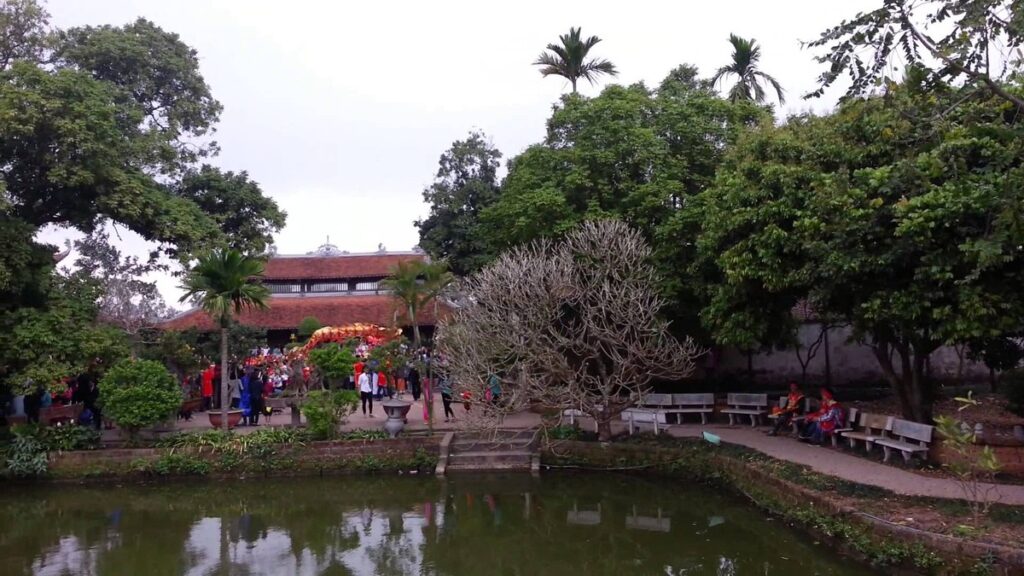
What is a Village Tour in Vietnam?
A village tour Vietnam typically includes visits to rural areas, traditional villages, or ethnic minority communities where travelers can:
- Experience the daily life of local people
- Participate in farming or fishing activities
- Learn about handicrafts and traditional arts
- Enjoy authentic Vietnamese cuisine
- Explore natural landscapes such as rice fields, rivers, or mountains
This kind of tour is often part of sustainable and community-based tourism. It helps preserve local heritage, provides income for rural communities, and allows travelers to make meaningful connections.
Why Take a Village Tour in Vietnam?
1. Authentic Cultural Immersion
Vietnamese villages are treasure troves of culture. From ancient temples to folk music and traditional dress, rural communities preserve customs that have been passed down through generations.
A village tour lets you interact directly with local families, observe rituals, and understand the cultural fabric that shapes Vietnamese identity.
2. Scenic Landscapes
Vietnam’s countryside is a patchwork of emerald rice fields, winding rivers, misty mountains, and tropical fruit gardens. Villages are often nestled in areas with exceptional natural beauty—perfect for photography, relaxation, or outdoor exploration.
3. Support for Local Communities
Participating in village tours contributes to the livelihoods of rural populations. Your stay in a homestay, your meals, and your tour fees directly benefit the locals—making your travel experience meaningful and responsible.
4. Hands-on Experiences
Unlike conventional sightseeing, village tours allow you to get your hands dirty: planting rice, cooking traditional dishes, crafting with bamboo, weaving textiles, or fishing in local ponds.
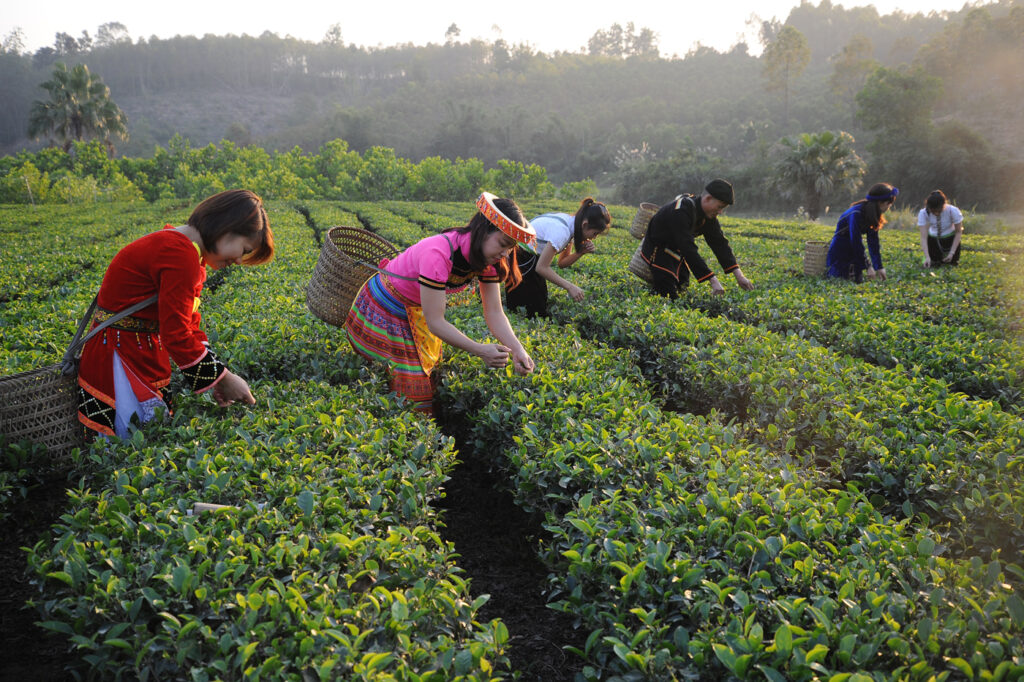
Top Village Tour Destinations in Vietnam
Let’s explore the most popular and rewarding destinations for village tours in Vietnam.
1. Mekong Delta – Southern Charm and Floating Culture
The Mekong Delta is a paradise for those seeking a unique village tour Vietnam experience. Its network of rivers, floating markets, coconut plantations, and rural houses on stilts provide a captivating backdrop.
Top experiences:
- Cruise through floating markets like Cai Rang
- Visit tropical fruit gardens in Vinh Long and Ben Tre
- Enjoy homestays with local families by the river
- Learn how to make coconut candy or rice paper
Recommended villages: Phong Dien (Can Tho), Cai Be (Tien Giang), and My Tho (Ben Tre)
2. Sapa – Highland Villages and Ethnic Traditions
Located in northern Vietnam, Sapa is home to diverse ethnic minority groups such as the Hmong, Dao, and Tay. The region’s terraced rice fields, foggy hills, and ethnic villages are ideal for trekking and cultural exchange.
Top experiences:
- Trek through villages like Lao Chai, Ta Van, and Cat Cat
- Stay in stilt houses with minority families
- Observe traditional crafts such as batik painting and indigo dyeing
- Participate in cultural festivals and traditional dances
Tip: Visit during rice harvest season (September–October) for the most stunning landscapes.
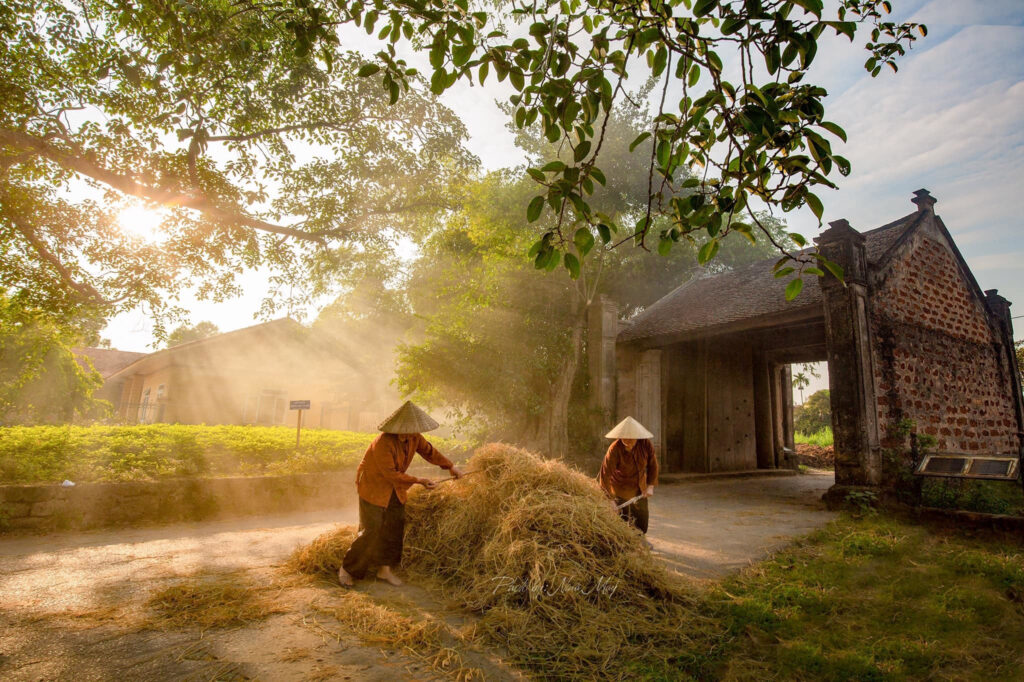
3. Hoi An Countryside – Farming and Fishing Villages
Just outside the ancient town of Hoi An lies a different world of peaceful villages, green fields, and winding waterways. It’s a top destination for short yet immersive village tours.
Top experiences:
- Visit Tra Que Vegetable Village and learn organic farming
- Paddle a round basket boat through the coconut forest in Cam Thanh
- Learn to cook with local families
- Ride a bicycle through paddy fields and lotus ponds
Perfect for: Day trips or overnight stays.
4. Mai Chau – Valley of Serenity and White Thai Culture
Located in Hoa Binh province, Mai Chau is a peaceful valley surrounded by mountains and home to the White Thai ethnic group.
Top experiences:
- Homestay in traditional wooden stilt houses
- Cycle through rice paddies and bamboo groves
- Enjoy local dances and gong music
- Explore caves and waterfalls in nearby Pu Luong Nature Reserve
Mai Chau offers a quiet alternative to Sapa, ideal for those looking for less-touristy village tours.
5. Ba Be Lake – Hidden Gem in Northeast Vietnam
In Bac Kan province, Ba Be Lake and the surrounding national park are home to the Tay ethnic people. It’s a hidden gem for village tours combined with eco-tourism.
Top experiences:
- Boat trip on Ba Be Lake
- Homestay in Pac Ngoi or Coc Toc village
- Visit waterfalls and caves
- Trekking through jungle trails and minority villages
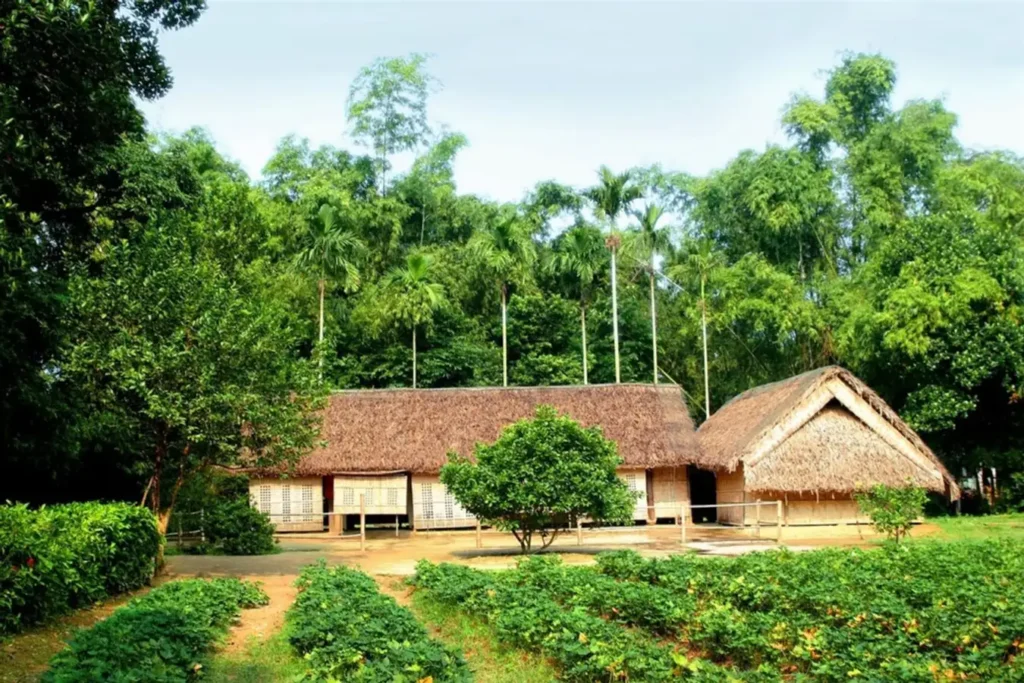
6. Duong Lam Ancient Village Tours – A Step Back in Time
Only 50km from Hanoi, Duong Lam is one of the best-preserved ancient villages in Vietnam. It’s a time capsule showcasing traditional architecture, ancestral houses, and communal temples.
Top experiences:
- Walking tour through 300-year-old houses
- Learn how to make rice cake and soy sauce
- Talk with locals about village life and heritage
- Discover old temples, pagodas, and wells
Ideal for: A half-day cultural tour from Hanoi.
What to Expect During a Village Tour in Vietnam
Accommodations: Homestays and Local Lodges
Staying in a homestay is central to the village tour experience. Expect basic yet clean facilities, traditional wooden houses, mosquito nets, and warm hospitality. Meals are often cooked by the host using ingredients from their garden.
Cuisine: Farm-to-Table Dining
Village food is fresh, seasonal, and cooked with love. You may enjoy:
- Grilled river fish
- Sticky rice in bamboo
- Local herbs and vegetables
- Hand-made rice wine
Don’t forget to try regional specialties—every village has its signature dish!
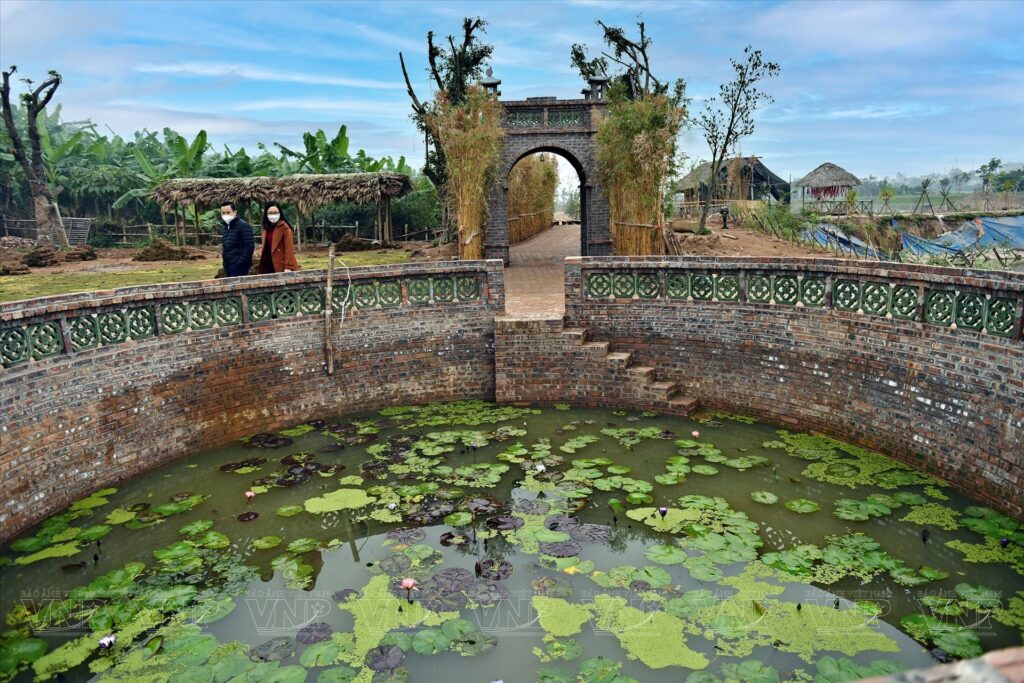
Activities: Engage, Learn, Explore
Depending on the village, activities may include:
- Harvesting rice or vegetables
- Making incense or conical hats
- Fishing with traditional nets
- Participating in family meals or ceremonies
Tips for a Memorable Village Tour Vietnam
- Respect local customs: Dress modestly, ask before taking photos, and learn a few local phrases.
- Pack appropriately: Comfortable shoes, light clothes, sunscreen, and insect repellent are a must.
- Embrace the simplicity: Enjoy the slower pace of life and disconnect from your devices.
- Book with responsible tour operators: Choose guides who prioritize community involvement and sustainability.
Village Tours and Sustainable Tourism
A village tour in Vietnam is not just a journey for the traveler—it’s an opportunity for local development and cultural preservation. Many of these tours are part of community-based tourism (CBT) initiatives that:
- Generate income for rural families
- Empower women and minority groups
- Protect traditional knowledge and crafts
- Promote environmental conservation
By choosing a village tour, you’re not just discovering Vietnam—you’re helping protect what makes it special.
Final Thoughts: Vietnam Beyond the Cities
If you truly want to understand Vietnam, you must go beyond the cities.
A village tour Vietnam is a door to deeper connection—with people, with the land, and with yourself. It’s where travelers find the unexpected: quiet beauty, shared meals, laughter over language barriers, and the comforting rhythm of rural life.
So next time you plan your trip, add a village to your itinerary. You’ll return home not just with photos—but with stories, friendships, and a little piece of Vietnam in your heart. Contact VietnamTour to take a wonderful trip to village Vietnam.
See more post: Vietnam history tour: Walk through the pages of a resilient nation

